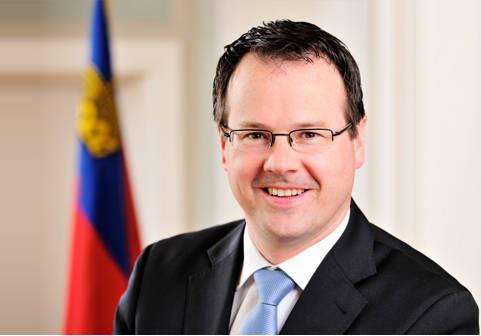By Thomas Zwiefelhofer, Deputy Prime Minister of Liechtenstein
Currently, around 60 million people worldwide are fleeing their homes. Each day, this number is rising by tens of thousands of people abandoning their places of origin. The flow of refugees across the Mediterranean has increased dramatically in recent years. According to UNHCR, 137,000 people fled across the Mediterranean to Europe in the first half of 2015, approximately 3,000 of them died during the attempt. Italy and Greece are literally being overrun by these inflows of refugees. Apart from the Mediterranean route, the refugee and migration flows have meanwhile also increased dramatically on the Balkan route.

These flows of refugees should not be the problem solely of those countries that are directly affected. Solidarity is essential, and so the European Commission presented a European Agenda on Migration in May. This agenda provides for an action plan against smuggling networks as well as a mechanism for the relocation and resettlement of asylum-seekers and refugees.
In the follow-up to the European Agenda on Migration presented by the European Commission in May and after weeks of debate, the 28 EU home affairs ministers adopted a first program in July to relocate 40,000 persons from Italy and Greece to other Member States as well as a program to resettle 20,000 refugees from third countries. At the end of September, another decision was made to relocate an additional 120,000 persons from Italy and Greece.
How many refugees the individual EU member states should accept has been defined according to a proposed binding distribution key. For the future, the introduction of a permanent crisis mechanism is also planned for the relocation of refugees by amending the relevant Dublin legislation.
As an associated member of the Schengen Area and the Dublin system the Principality of Liechtenstein is not required to participate in these actions, but it can do so as a sign of solidarity on a voluntary basis. In the spirit of its humanitarian tradition, Liechtenstein has declared its willingness to participate voluntarily in the two EU relocation programs.
Furthermore, Liechtenstein has already been active in the UNHCR Resettlement program and has accepted six Syrian refugee families since last year, a total of 23 persons. These numbers might appear low, but they are considerable for a small state like Liechtenstein with its limited absorption capacity.
Additionally in 2014, Liechtenstein spent 25 million US Dollars on projects in Emergency and Reconstruction Assistance, International Refugee and Migration Assistance and Development Cooperation. This year, the expenditures will be increased significantly. They amount to approximately 2.7% of government spending.
Liechtenstein is not currently a destination country for refugees. This probably is due to the geographic location of our country, but also perhaps its lower level of familiarity. Nevertheless, the situation can change from one day to the next. We are prepared, and we have established a task force for this purpose.
The coming weeks and months will show, if and how Europe will be able to handle the refugee crisis and if the current European structures function well enough. Liechtenstein will actively involve itself in the discussion and try to contribute to the solution finding process.
